Digital Agriculture Fellows
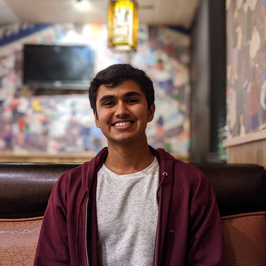
Sulaiman Ahmed
Major: Computer Science
Sulaiman hopes to apply computer science and data analytics principles to beneficial causes in the real world.
Fellowship focus: “Analyzing satellite data and drone data of California farmland and running data analysis, outputting potential biotic and abiotic factors that both benefit and harm crop growth in certain areas.”
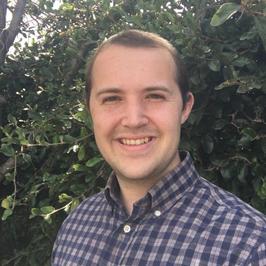
William Scott Burgess
Major: Mathematics
William plans on pursuing a career in agricultural technology, or technology as it relates to natural resources more broadly; specifically, William is interested in working at the intersection of this emerging field and the financial sector.
Fellowship focus: “Currently, I am working with Dr. Hoori Ajami and Dr. Adam Schreiner-McGraw to design computational methods for the purpose of determining groundwater response to precipitation droughts.”
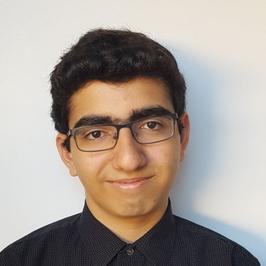
Hovanness Dingilian
Major: Environmental Engineering, Water Pollution Control
Hovanness plans on completing a Ph.D. to develop a better understanding of ways to utilize water in a safe manner. Hovanness would like to work in the Environmental Engineering field, either in renewable energies or pollution mitigation.
Fellowship focus: “For the Digital Agriculture Fellowship, I am working with Dr. Alexander Putman in the study of plant pathology. My research utilizes an unmanned aerial vehicle or drone to identify plant disease as early as possible in its stages and monitor ways to combat it. This will improve agricultural practices and allow for greater food availability for human consumption.”
Vinayak Gajjewar
Major: Computer Science
Vinayak plans on becoming a leader in the field of machine learning and would like to work on research projects that impact society for the better.
Fellowship focus: “My project under Dr. Ahmed Eldawy in the UCR Big-Data Lab this summer is called Raptor, a Raster+Vector query processing engine. Raptor is designed to efficiently combine raster data (satellite images) with vector data (roads and boundaries) in a single efficient query processing core. Raptor has already been applied to many practical applications, such as estimating crop yield and combating wildfires.”
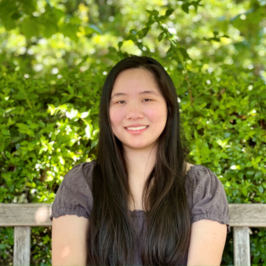
Cindy Ho
Major: Computer Science
Cindy would like to work at a startup company upon graduating from college.
Fellowship focus: “Water is a limited resource on this earth and it is essential in regard to crop growth. By analyzing crop data using satellite and remote sensing, we can better assess how much water a crop would need to survive without wasting this valuable resource. Each crop has its own features and the amount of water it needs varies. So, in this lab, I am working with Professor Ray Anderson in using machine learning to help identify the different types of crops which will assist in analyzing the water usage.”
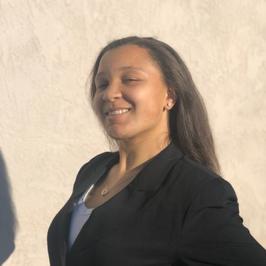
Kennedy Lincoln
Major: Environmental Engineering
Kennedy plans on pursuing a job that involves world travel and conducting field research on the direst environmental issues facing underserved communities and innovate solutions for these issues. Kennedy would like to tackle clean water access in underserved areas because access to clean water is a human right which all people deserve. Kennedy hopes to make a positive change throughout a career as an Environmental Engineer in each job position and would ultimately like to change the world for the better.
Fellowship focus: “In the United States, there is an invasive species called the Asian Citrus Psyllid (ACP) which feeds primarily on plants in the family Rutaceae, which includes citrus and its relatives. The Asian Citrus Psyllid is found in citrus producing regions throughout Florida and in certain parts of California and Texas where citrus groves are prevalent. ACP vectors the bacteria that causes Huanglongbing Disease, commonly known as Citrus Greening Disease, which has the potential to kill a citrus grove in as little as 5 years. In order to understand the distribution and risk of the spread of HLB, it is necessary to be able to quickly trap and identify the insect as it arrives in the orchard.
I am currently researching in the UCR Citrus Entomology Department in Dr. Monique Rivera's Lab where I am using Artificial Intelligence to create a mobile application to count and identify ACP on the commonly used yellow sticky panel traps which are hung at the flesh points of the trees. Once the farmer downloads the mobile application to their phone, they will take a picture of the ACP sticky trap and the app will tell them how many ACP are present.”
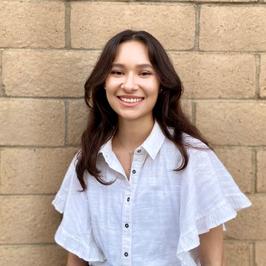
Ingrid Morales
Major: Computational Mathematics
Ingrid plans on pursuing graduate school-level education and one day working as an applied mathematician.
Fellowship focus: “I am working in the Multi-Aspect Data lab under the supervision of Professor Vagelis Papalexakis. We are analyzing satellite image tensors to detect patterns for pixel classification. Current state of the art tensor decompositions can either provide high accuracy or intuitive visualizations, but not both. I am investigating these state of the art methods to extend existing models. Due to the flexibility of the tensor modeling, we can include additional dimensions to our analysis, such as 'time,' to provide forecast predictions. We are hopeful that our efforts will lead us into visualizing patterns while maintaining high accuracy.”
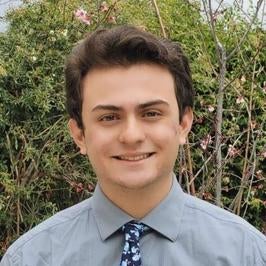
Kevin Urrutia
Major: Electrical Engineering
Kevin hopes to become an entrepreneur within the space of research and development, with a goal of conducting R&D on robotic units that look to improve the environment and that use green energy to operate.
Fellowship focus: “The research being conducted looks to develop an autonomous solution for different agricultural processes including: soil moisture readings and pressure bomb readings. These different processes can be both very costly to the average grower as they are required to hire an expert to have these done as well as the process can be very time consuming. But, specifically these two processes are mundane enough to be automated. Therefore the laboratory looks to integrate these two processes into a single autonomous system.
The lab looks to automate these processes using an all-terrain autonomous drone. The robot is equipped with a robotic arm that will be used to reach up high to cut leaves to automate the pressure bombing. As well as with a bluetooth receiver that will be used to communicate with soil sensors on the ground to receive soil moisture levels as the robot passes through the field.”